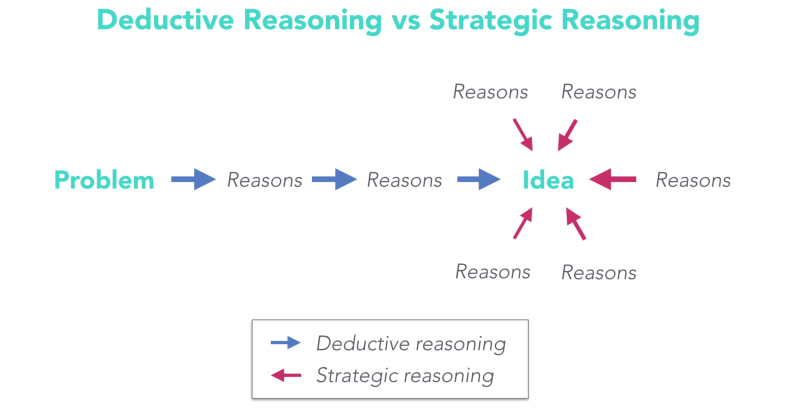Why Not All Data-Driven Decisions Are Good Decisions
Written by Dave Bailey

The best decisions are data-driven. But, not all data-driven decisions are good ones! Learn how to make smarter decisions using data.
Strategic reasoning
I love pop-psychology books. One of the most enlightening I’ve ever read is The Righteous Mind by Jonathan Haidt. Jonathan describes the first rule of moral psychology as:
‘Intuitions come first, strategic reasoning second.’
Intuitions happen almost instantaneously. It’s the ‘gut feeling’. But the rational mind works more slowly, and to keep up with our intuitions, it has become well-adapted to providing post-hoc justifications or explanations for our gut instincts. This is called strategic reasoning. And once the mind finds evidence to support an intuition, it stops thinking.
Learn new skills every week ->
How this pans out in business
See if you recognise this familiar story. A leader gets an idea. He finds logical, data-backed reasons for why his idea is the right course of action. The team frown and ask innocently, ‘Is this really the simplest way to address this particular problem?’
The founder insists, explaining how it will ‘kill several birds with one stone’. The team nod their heads in agreement and execute the idea. And the problem persists.
Okay, I admit it. The leader in this example was me. I publicly apologise to my team for all the times this happened. I’m really sorry.
But I bet a lot of people can identify with the general situation. The tell-tale signs of strategic reasoning are there: finding logical reasons to support an idea; the team’s frowns; ‘killing several birds with one stone’.
Strategic reasoning is a gut feeling in disguise
Strategic reasoning starts with the intuition and hunts for any evidence it can find to support it. Ask any marketer, and they’ll tell you that you can find data to prove anything you want. That’s the danger with strategic reasoning. It can make any intuition look ‘data-driven’.
Intuitions aren’t bad. In fact, our intuitions are often the source of our best ideas. The problem is that our minds are pre-programmed to find reasons to follow our intuitions. And this is the hidden cause of bad decisions.
How to double-check your intuitions
To test whether an intuition is more likely to end in a good or a bad idea, you need to apply deductive reasoning. Deductive reasoning doesn’t start with the idea. Instead, it starts with a clear business problem and takes logical steps from that problem to the idea. The stronger the logic, the better the idea.

1. Articulate the most important problem to solve.
There are always lots of problems. Understanding which is most important is critical for deductive reasoning.
2. Present the problem, not the solution.
Show the problem to the smartest and most informed people you know, and get their ideas on solutions before sharing your ideas.
Learn new skills every week ->
3. Pro-actively seek out contrary arguments.
The natural tendency is to stop thinking once you have supporting evidence. But look for evidence to kill an idea. Bad ideas must die before great ideas can emerge.
4. Keep linking new ideas back to the problem.
‘If we did X, would we solve our problem?’ It’s easy for the conversation to wander onto other topics. Stay focused on the problem at hand.
Final thoughts
The most intellectually-resourceful people are often best at strategic reasoning. They are our debaters, our PR agents, and yes, our entrepreneurs. But unchecked, intuitions can lead even the brightest of us astray. Deductive reasoning is a powerful tool to help us all stay on track.
Continue reading about data strategy:
- Revitalising your business strategy? Learn from my guide to strategy development for startup leaders and CEOs.
- Is your business having a small crisis? Compare the proactive vs reactive approach to dealing with crises.
- Are your tasks weighing you down? Here is a handy tool you can use to stop procrastinating.
Originally published Feb 25, 2019, last updated Jul 27, 2023
Learn a new skill every week
Subscribe to my weekly newsletter and learn new skills and mental frameworks that make startup life easier.
Unsubscribe any time.





